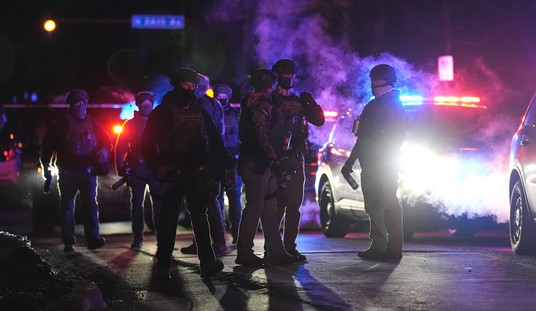In 2009, Robert Bowe Bergdahl reasoned that his battalion was under poor leadership. After speaking with his father, he decided he was going to hike to FOB Sharana to alert a General that his platoon might be ordered on a suicide mission. It was nonsense. All fantastic fiction.
Private Bergdahl went AWOL, left his platoon, and a massive search and rescue ensued. The Taliban found him first. Later, while Bergdahl was with the Taliban, his father was busy growing a beard and tweeting pro-Taliban comments ending with “Ameen.”
In 2014, Bergdahl was exchanged for five terrorists. The swap was illegal because Congress wasn’t given notice, but the deed was done. Susan Rice famously said he had “served with honor and distinction.” He hadn’t, and the Army knew it. Bergdahl, back in the USA and back in uniform and sporting “Sgt.” stripes, was confined to base while the Army determined what, if anything, he could be charged with.
The Article 32 preliminary charging document sets out in detail that, although Bergdahl was massively naive and suffered from “Schizotypal Personality Disorder,” he knew what he was doing. The charging officer found probable cause for all charges, with the most severe being Misbehavior Before the Enemy. However, there was no recommendation of jail time, and mitigation was considered in Bergdahl’s favor.
Thereafter, his case was assigned to Colonel Jeffery Nance. Col. Nance was a “terminal colonel” nearing forced retirement. With retirement looming, Nance apparently wanted to keep working, and in 2017, while still assigned to the Bergdahl matter he applied for a position as an immigration judge with the newly elected Donald Trump administration.
Bergdahl’s court case proceeded with several motions filed by his legal team asserting, among other things, claims of “Unlawful Command Influence” (UCI). Undue Command Influence is when a commanding officer or official (usually the President) says or does something that might influence a military court proceeding. In this case, the defense claimed that statements by Sen. John McCain as the Chairman of the Armed Services Committee and statements by then-candidate Donald Trump had an undue influence on the court.
Candidate Trump called Bergdahl a traitor multiple times. After Trump was elected, Trump was asked about Bergdahl. He didn’t repeat his “traitor” label, but Trump, in essence, implied that he was incorporating his previous remarks.
By this time, Bergdahl had agreed to plead guilty. He had agreed to a dishonorable discharge, reduction in rank back to private, and forfeiture of pay of $10,000.
But after Trump made his remarks, Bergdahl filed another Unlawful Command Influence motion. After consideration, it was rejected by Col. Nance. But Nance gave Bergdahl the option of withdrawing his plea and proceeding to trial. Bergdahl rejected that option and stuck with his plea of guilty.
In 2021, after exhausting his appeal options in the Court of Appeal for Armed Forces (CAAF) and losing each time, Bergdahl filed an appeal in Federal Court. This time Bergdahl “won.” In a 63-page opinion (that is mostly a regurgitation of why Bergdahl’s UCI motions were properly rejected), Federal D.C. District Judge Reggie Walton ruled in Bergdahl’s favor on his claim that Col. Nance had an undisclosed conflict.
Although the vast majority of Walton’s decision and order was recounting that Col. Nance did not seem to be biased or unfair and that Nance had given Bergdahl the chance to withdraw his voluntary guilty plea, Walton vacated the conviction anyway. The matter was not dismissed.
It appears that if the Army wants to retry Bergdahl, it can. Walton’s decision seems to me to be internally conflicted. Although Nance’s application for a judgeship wasn’t disclosed and should have been, it is rather apparent, even from Walton’s admissions, that it had no influence on Bergdahl’s decision to voluntarily plead guilty.
Further, Walton notes that none of the Unlawful Command Influence claims were improperly denied, so why is Bergdahl back to being Sgt. Bergdahl? Because judges must disclose conflicts and recuse or disclose the potential or appearance of a conflict. Col. Nance didn’t do that. But here is the rub: It seems to have been a “harmless error.”
But not in Walton’s opinion.
Will this vacation result in Bergdahl being back in court? It should, and the Army should try him on all charges. But it won’t. In today’s Army, I don’t think Command has the stomach to retry Bergdahl. That’s why his lawyers filed their CAAF appeals and spent six years, ending on July 25th with Judge Walton siding with Bergdahl. Six years ago, Bergdahl walked away with no jail time and a dishonorable discharge. But he wants more.
I am betting that his lawyers will ask for – and get – a general discharge and his rank of “Sergeant” back, with back pay. I hope I am wrong.
Regardless of what the New York Times claims, men were horribly injured, and at least one man died from injuries sustained while looking for Bergdahl. Bergdahl isn’t a victim. He came back with all his parts still attached. He went AWOL and pled guilty to it. A lot of brave men went looking for him, and they will carry scars from that search for the rest of their lives. Although Bergdahl could have gotten life in prison, he walked away with no jail time.
If Bergdahl walks away scot-free or gets a better deal, it will be one last indignity from the Afghanistan debacle.














Join the conversation as a VIP Member